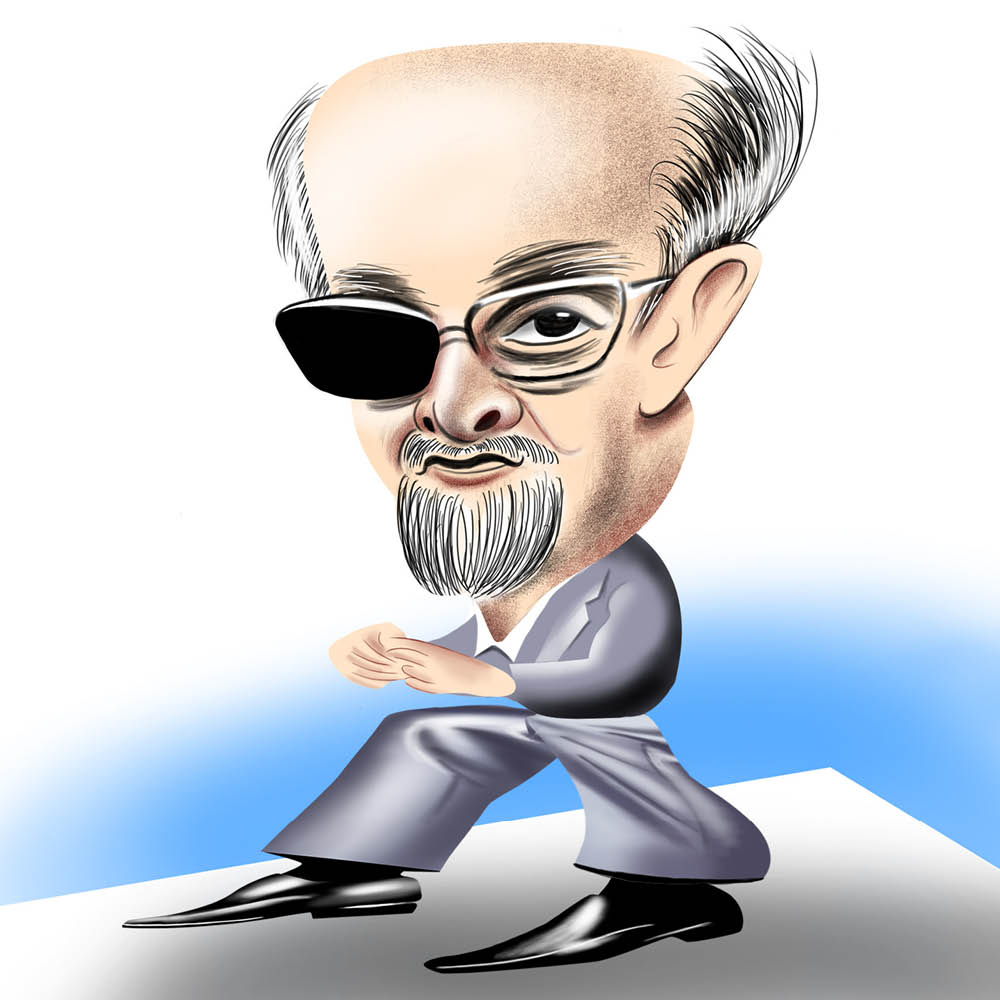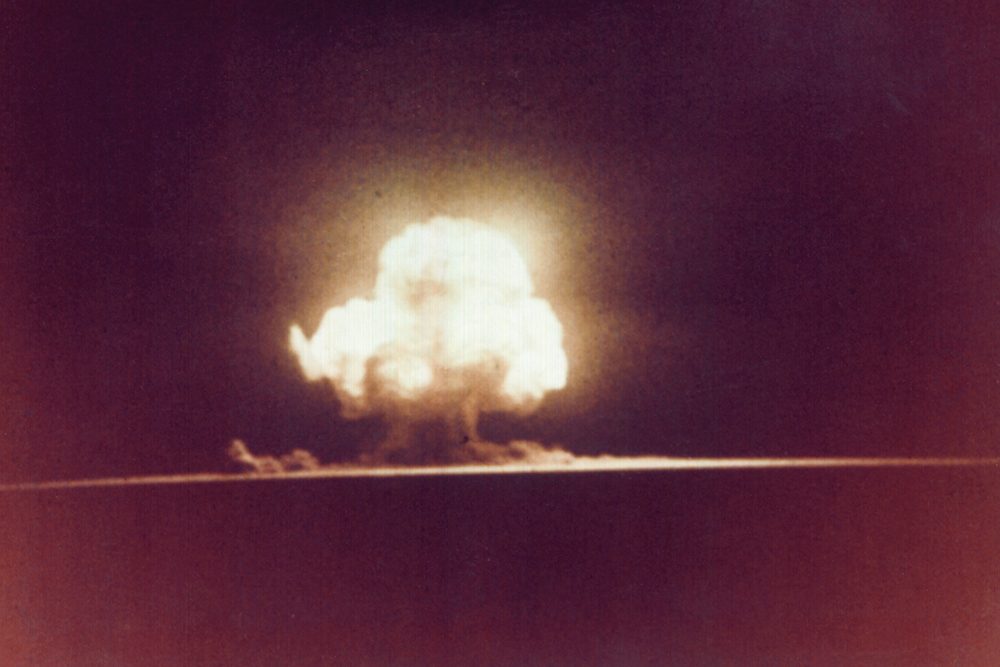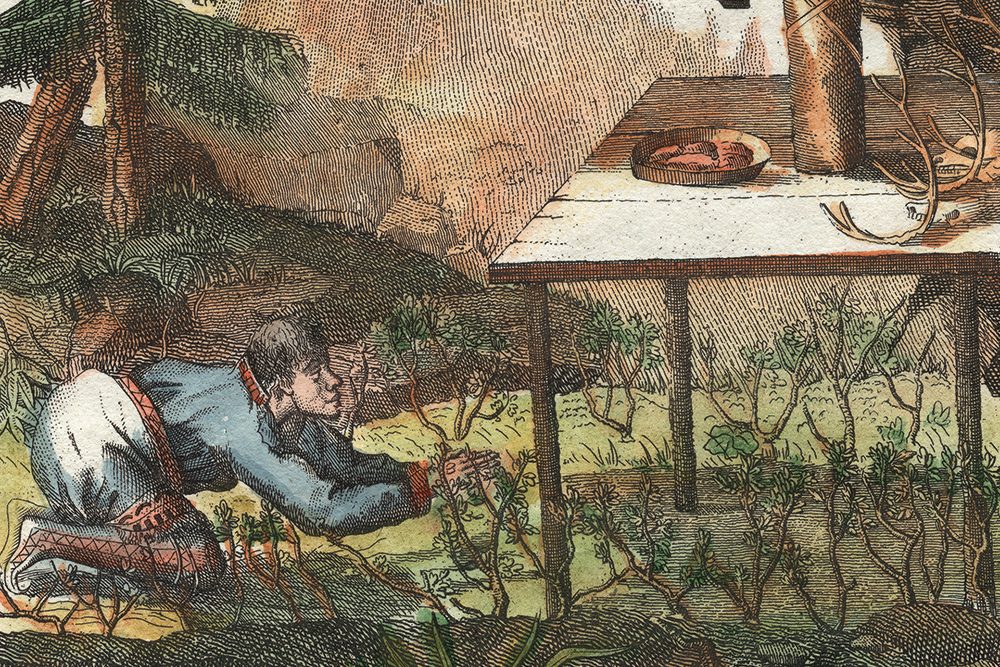In late summer 2022, at the Chautauqua Institute in upstate New York, the celebrated novelist Sir Salman Rushdie was stabbed many times as he was about to give a lecture, the subject of which, ironically, was keeping authors safe. The attack sent shockwaves throughout the literary establishment, and the world. It seemed as if civilization itself was under threat, as if our fundamental freedoms to create, associate and speak as we wish were defunct, reduced to the point of a knife. His new memoir, Knife, examines the attack and its implications for him, and for such freedoms generally.
Rushdie had been under a fatwa, or ruling, issued by the late Iranian head of state Ayatollah Khomeini since publication of his book The Satanic Verses in 1989, and had been living under continuous police protection in the United Kingdom. Khomeini’s fatwa called for Rushdie’s death, and at least six assassination plots against him had been foiled by British intelligence (and indeed the British police and intelligence services come out of this book in a very good light, which must be refreshing for them). Rushdie’s continued protection was controversial: there were even those who argued that he deserved the fatwa, and that the taxpayer should not be funding his protection. Rushdie gives these people short shrift, reserving particular and justified ire for the columnist Richard Littlejohn, who said he “wouldn’t mind at all” if Rushdie were attacked. “I assume Littlejohn is feeling pretty satisfied now, wherever he is.” The press made a toy of Rushdie, not seeming to understand that living under continuous armed guard is debilitating and prison-like, to say the least.
As the pressures of the fatwa eased, and the threat seemed to diminish, Rushdie began to go out in public more often; the press labeled him a party-going socialite, a novelist who would rather drink cocktails than write. In fact, he says, he simply made an effort to be seen whenever he went out, to show that he was no longer afraid. His move to America was designed to enable him to live more freely. The New York police were unaware of any plots or threats against him; the press generally let him be.
And, up until the day of the stabbing, Rushdie’s strategy was working. He had fallen in love with and married the poet and writer Rachel Eliza Griffiths, a relationship he had managed to keep out of the public eye, and which also pleased his family greatly. He was about to publish a new book, Victory City. He was happy, as happy as a man can be, he writes, in a world beset by trouble.
All that would change in the twenty-seven seconds that his attacker was upon him. As one of the many doctors who tended to him tells him later, he was lucky that his attacker didn’t know how to kill. “I don’t believe in miracles,” Rushdie writes, “but my survival is miraculous.” The stab wounds are described with meticulous, almost clinical precision. Rushdie ended up losing an eye which, at the time of composing Knife, he says he has still not come to terms with.
This memoir, with its pointed title, is an attempt to understand what happened to him, as well as a way of setting out his beliefs, unshaken in the face of danger. “I don’t like to think of writing as therapy — writing is writing, and therapy is therapy — but there was a good chance that telling the story as I saw it might make me feel better.” When his agent, Andrew Wylie, visits him in hospital, and suggests that he will write about the attack, Rushdie initially demurs. He soon comes to understand, however, that he can’t progress with fiction until he has tried to address it. The patient, intelligent and forensic detail with which Rushdie sets out the facts and the events of that day and its aftermath bring tears to the eye.
Being a writer, he sees foreshadowings and patterns everywhere, which help him to give shape, form and meaning to what otherwise seems random. He researches other writers who have been attacked, finding parallels with them. Two nights before the attack at the Institute, he dreamed of being in a Roman amphitheater, fighting a gladiator, and realizes that the lecture room where he was about to speak is also an amphitheater. He recalls a past novel of his, Shalimar the Clown, which was born from a single image, “a dead man lying on the ground while a second man, his assassin, stood over him holding a bloodied knife.” However, he dismisses prophecy: “I’ve had some trouble with prophets in my life, and I’m not applying for the job.”
The attack itself is rendered with devastating clarity, pieced together by Rushdie from his own memories and from eyewitness accounts. “So it’s you. Here you are,” he thinks, seeing the man run at him, and then “Really? It’s been so long. Why now, after all these years?” He worries about his new Ralph Lauren suit. There are inconsistencies: he remembers not feeling any pain at all, but those who were present say he was wailing.
Rushdie refers to the attacker, who was twenty-four at the time, as “the A.,” not wanting to give him his real name, and also making it short for Assailant, Assassin and Ass. The A. used a false ID to enter the Institute: “his fake name constructed out of the real names of well-known Shia Muslim extremists.” Could someone have spotted this and questioned it? He was carrying a bag full of knives, something that causes Rushdie particular horror. Was he not worried about being searched? The A. hardly knows anything about Rushdie: “by his own admission, he read barely two pages of my writing and watched a couple of YouTube videos of me, and that was all he needed.” Later in the memoir, Rushdie excoriates the “groupthink” that helped to give rise to the A.’s bankrupt, repellent ideology: “YouTube, Facebook, Twitter and violent video games were his teachers.”
Rushdie’s descriptions of the immediate aftermath of the stabbing are full of tension. He highlights the bravery of those who stopped the A., including a seventy- year-old man who helped to save his life
As the news spreads around his family and then the world, the reader is kept on a knife edge. Armed guards collect, and a helicopter arrives to take him to a trauma unit in Pennsylvania (where, one doctor cheerfully informs him, hardly anyone leaves alive). It doesn’t look good, and his family gathers to hear the worst. At one point he is literally held together by staples. He endures horrific pain and indignity in the trauma unit. Yet Rushdie’s stoicism and good humor are apparent throughout: “I just stood there like a piñata and let him smash me,” he writes of the attack; soon afterward, in the hospital, he’s joking with his son, saying that he identifies with the X-Man Wolverine (who heals himself, unbreakable).
Rushdie meditates on the idea that a “knife attack is a kind of intimacy.” He thinks about meeting his assailant, but decides against it. Instead, part of this memoir is taken up with a series of imagined interrogations, with Rushdie playing the interviewer. These have an intensity reminiscent of Truman Capote’s In Cold Blood and could make a playlet or short film. In them, the attacker is sometimes eloquent but is unable to answer Rushdie’s questions convincingly: there is no justification for what he has done. “You don’t know me. You’ll never know me,” says the A. And while that may be true, it’s also true that Rushdie is able to identify the many forces that came together to cause the event, and to condemn them utterly.
Rushdie remains clear in his belief: like many atheists, he sees religion as essentially a childish thing, which mankind needed in its childhood; now that we are in a more advanced age, he thinks, we should discard it. Thinking like this seems wrong to me. You cannot discount thousands of years of theology as mere childishness, nor can you discount the real and profound faith that many people feel so simply. Nevertheless, for Rushdie, “respect for religion” is equivalent to “fear of religion,” and he firmly believes that it should be kept out of the public sphere, and that religion’s mutations have tragic consequences. He argues powerfully that we should be able to satirize everything.
The major force that keeps Rushdie going throughout his recovery is love: a deep love of life, and the love of his wife and family. His friends, too, rally round him, although he loses some of them: Martin Amis dies, Milan Kundera dies, Hanif Kureishi and Paul Auster become ill. (Auster has since died.) In some ways this is a memoir about the passing of a literary age, although I wonder which writer now is brave enough to take up Rushdie’s baton.
It seems churlish to pick holes in a book composed amid such trauma, but Rushdie does, quite often, have recourse to cliché: he has “a lightbulb moment,” for example, and when he returns home, he calls it “Dulce Domum.” But, in a way, even the clichés and the ordinariness of the things that he does — visiting friends, going out for dinner — take on a powerful sheen, thrown into relief by the senselessness of what has gone before.
Though there is nothing earth-shatteringly original in the book, its message is evident. Rushdie remains strong, his determination to write a beacon for anyone who cares about freedom of thought and speech in this world of increased censorship and censoriousness. We can leave the last words to the man himself: “Live. Live.”
This article was originally published in The Spectator’s June 2024 World edition.























Leave a Reply